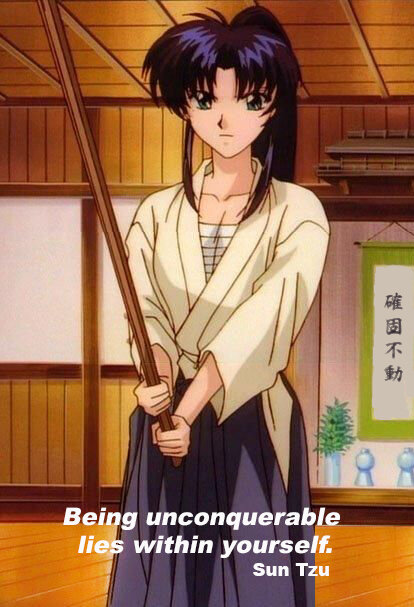There is no praise on the battlefield. There was once this student in our dojo who was very promising. He was athletic and full of potential and even Furuya Sensei took notice. When he became a formal deshi, people stopped praising him and started criticizing him and in just a few weeks he quit. He wasn’t ready for this position because he didn’t know himself well enough to overcome the adversity of formal traditional training. In order to overcome adversity a person needs confidence. With confidence it’s easier to act with courage and valor. Early on, we gain confidence through external validation and it comes in the form of praise from others and accomplishment. At some point, we have to learn to internally validate ourselves and we can only do that when we have a grasp of who we are. Confucius said, “What the superior person seeks is in themselves; what the small person seeks is in others.” The greatness/weakness of training is that it reveals to us just who we are. If we don’t know who we are then we will be resigned to the will and whims of others and when they are gone and life or battle gets too difficult then we won’t have anything to draw upon. A warrior acts without the desire for victory or praise - they act because it’s part of what they do. The warrior learns through training that each victory or defeat is part of their process of self-discovery and they let the experiences of the journey be their validation. Seeking praise from others gives away our power. True power is knowing one’s self. We become powerful because we know ourselves. By knowing what makes us tick, we can internally validate and motivate ourselves and thus there is no need for praise. A warrior knows themselves and that’s why there’s no need for praise on the battlefield.
Today’s goal: Learn to validate yourself by creating a validation list of all the things you have achieved or accomplished. Review it daily or whenever you need a boost.





















